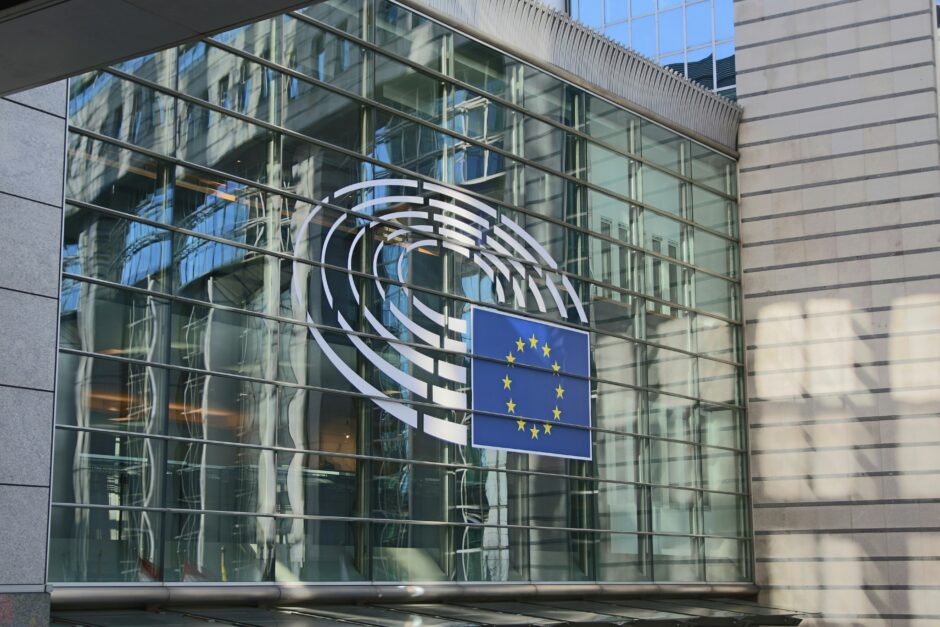The elections to the European Parliament are once again upon us. As a committed democrat, politically interested individual and a citizen of the EU’s most populous country, it is not just a privilege, but a duty to cast my ballot against growing authoritarianism and the rightward shift in Europe. I hope that Europe can send a clear message to the world before the US presidential elections this fall: “We in Europe reject far-right and anti-democratic politics. Please follow our lead!” However, what dampens my optimism are the latest polls from Ipsos France, which indicate that the far-right factions, European Conservatives and Reformists (ECR), including Italy’s Fratelli D’Italia, led by Meloni, and Identity and Democracy (I&D), which includes Germany’s populist party AfD, are projected to secure 157 seats—21 seats more than the Socialists and just 20 seats behind the largest faction, the European People’s Party (EPP). I am concerned about how long the firewall, built by democratic parties in several EU states to block anti-pluralist and far-right parties, will hold up. Indeed, Ursula von der Leyen, President of the EU Commission, has not ruled out a cooperation with the ECR if she is re-elected.
With a voter turnout of just over 50 percent at the last European election, which is continuously rising, I still hope that we can mobilize more people to vote for democratic parties this year. Often, it’s not dissatisfaction with national politics or beliefs like “nothing ever changes” that keep people away from the European elections; rather, it’s a lack of understanding of how the complex entity of the EU functions and how it impacts people’s daily lives. Explaining why Members of the European Parliament move every month from Brussels to Strasbourg, wasting huge amounts of taxpayers’ money to pass some bureaucratic laws, is, indeed, challenging. Additionally, some believe the EU is non-democratic, which naturally undermines any legitimacy of the European elections. Nonetheless, there are still countless democratic and worthwhile reasons to participate in this election. Let’s shed some light on how this election will affect our future.
What is at stake?
Before diving into how the EU and its legislative procedures work, it is good to consider what is at stake, should there be a shift to the right. The current Commission is composed of representatives from various parties, ranging from slightly right to left of the center. With von der Leyen’s announcement that she would not rule out forming a coalition with the ECR, the political orientation of the Commission could shift significantly to the right. Achievements, although conservative in nature, but substantially supported by more progressive parties, could be at risk of being overturned. This, for instance, includes the European Green Deal, aimed at decarbonizing the economy. Furthermore, the already precarious situation for migrants and asylum seekers could worsen with the ECR’s involvement. With the slogan “doing less, but better”, the ECR aims to restrict the EU’s legislative competences, which could lead to a blockade of important international cooperation necessary for initiatives like the European Green Deal. For example, the EU is internationally recognized as a leader in climate protection, although measures to maintain the 1.5 degrees target are still insufficient. Now that we know what is at stake, let’s see how the EU works and what your individual impact might be.
How does EU legislation work?
Legislation within the EU, such as the European Green Deal, begins with the European Commission, the EU’s executive body and the only institution that can propose legislation. This role aligns with its function to initiate policies addressing collective European interests, such as climate change and sustainability goals. Commissioners, appointed by member states, are intended to act independently of national interests and draft proposals within their respective domains, such as environment and energy. These proposals aim to address key policy areas like reducing greenhouse gas emissions or promoting energy efficiency.
Once the Commission has drafted a proposal, it enters the co-decision procedure, involving two key legislative bodies: the European Parliament and the Council of the European Union. The European Parliament, directly elected by EU citizens, examines, amends and votes on the proposed legislation. Its members represent a wide range of political ideologies and national interests. The Parliament’s Environment Committee, for instance, plays a crucial role in scrutinizing and amending proposals like the Green Deal. The full parliament then votes on this amended proposal, requiring a majority for approval. Simultaneously, the proposed legislation is reviewed by the Council of the European Union, which consists of ministers from each EU member state’s government relevant to the policy field. The Council also needs to approve the legislation, often requiring a qualified majority for environmental policies. If the Parliament and the Council disagree, the proposal can enter a conciliation committee, composed of members from both institutions, to reach a compromise. If achieved, the modified proposal goes back to both the Parliament and the Council for final approval.

What is your impact?
Every vote in the parliamentary elections directly influences the composition and political balance of the Parliament. This affects the political alignment of the EU in many ways. First, the President of the European Commission usually represents the party with the majority of the votes in the elections, also called Spitzenkandidaten procedure, giving voters great influence over the EU’s most powerful institution. With the Commission being the only body to initiate legislation, the EU is often criticized as undemocratic. However, this is mitigated through the Spitzenkandidaten procedure, which provides the system with more accountability, as candidates are held responsible for their electoral platforms. In 2019, initially, Manfred Weber, Spitzenkandidat of the EPP, won the elections, but the national governments could not reach a consensus on him becoming the President of the Commission, leading to Ursula von der Leyen’s election. It remains to be seen how credible this procedure will be in the upcoming elections.
Despite these circumstances, the majority composition of the Parliament can determine the extent to which ambitious policies are put forward. A parliament dominated by parties favoring strong environmental policies, for example, would likely support progressive measures within the Green Deal. The Parliament also plays a critical role in monitoring the implementation of legislation like the Green Deal, holding the Commission and member states accountable for their commitments. The impact of every MEP should also not be underestimated. MEPs participate in committee meetings where the specifics of legislation are debated and amended. Therefore, your vote does not only influence who is part of these committees, but has a great impact on the future direction of the EU in various policy fields, including how progressive our climate rules are.
Are you still deciding who to vote for in the upcoming elections? It is definitely worthwhile to read through the manifestos of the democratic parties that interest you. Additionally, consider the individual candidates running in your region, as their impact should not be underestimated. A good way to do so is to look up their voting records on policy proposals in the areas that matter most to you. For instance, if you’re curious about how some MEPs voted on the controversial asylum and migration management regulation, you can visit HowTheyVote.eu. This website provides information about the voting behavior of each individual MEP and faction. Remember, your vote is your voice – make it count on from June 6th to 9th!



